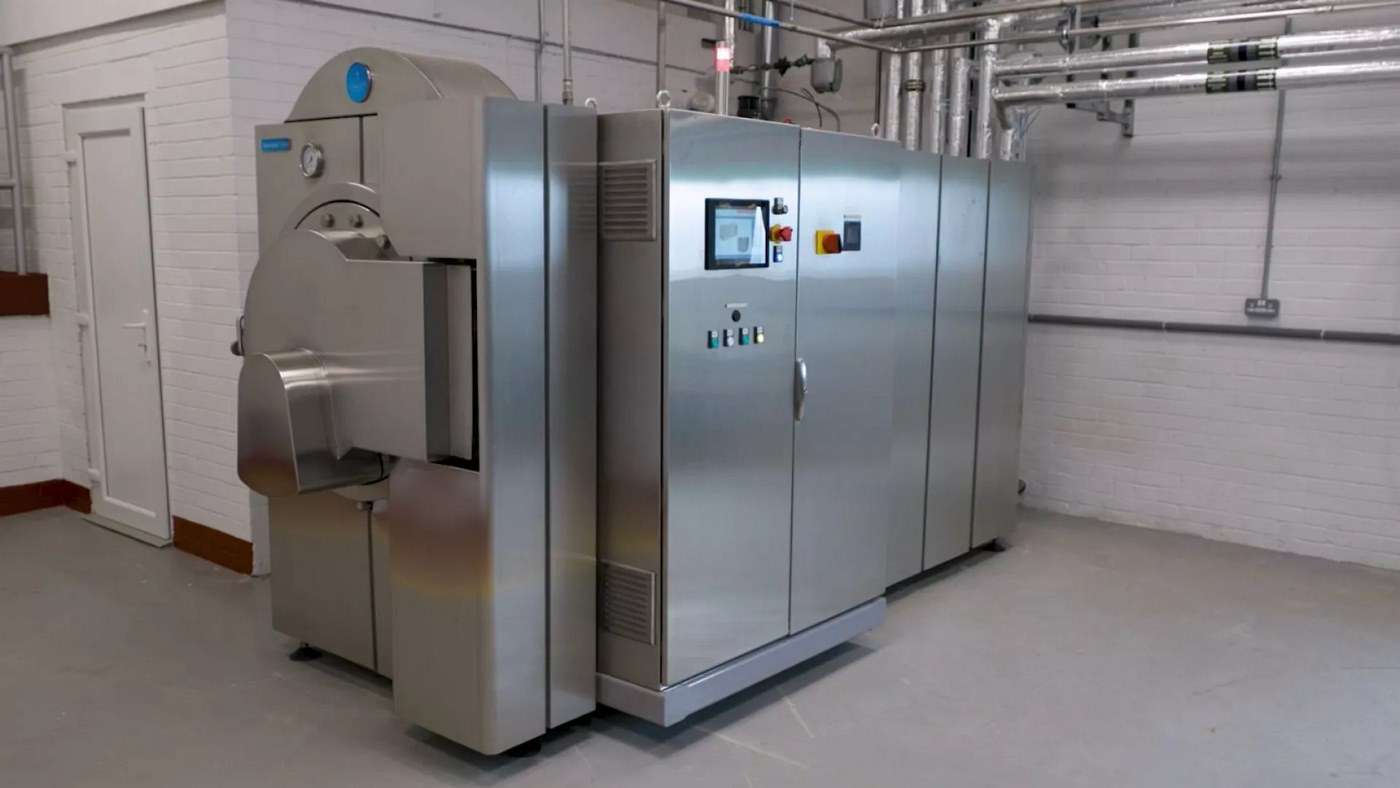Paris Olympics Gets 11,000 Stadium Seats Made of Recycled City Plastic
80% of the 100 metric tons of plastic needed to make the seats came from a single neighborhood—which is also where it's being processed.

In the UK, the nation's largest end-of-life service provider is now going to add "resomation" or water cremation, to its offerings.
Perhaps the most eco-friendly funeral procedure beyond just illegally burying someone in a forest somewhere, resomation has a lot of work to do in terms of gettings its name out there.
Resomation, also known as alkaline hydrolysis, neatly deconstructs a human body all the way down to a skeleton in just 4 hours using an alkaline solution. After that, the bones are ground into a powder and placed in an urn for the family.
It's the method that anti-apartheid hero Archbishop Desmond Tutu chose after he passed away in 2021. It uses 5 times less energy than a fire cremation.
The UK's biggest funeral provider, Co-op Funeralcare, has announced that it will introduce the practice later this year following last year's approval by regulators.
"[We] will be providing people with another option for how they leave this world because this natural process uses water, not fire, making it gentler on the body and kinder on the environment," Julian Atkinson, director of resomation company Kindly Earth, told Euro News.
For those who care, Euro News claimed in their write-up of the new resomation service that 245 kilograms of CO2 and equivalents are released for every fire cremation. They also cited polling data that showed 89% of UK adults had never heard of water cremation before.

WS has stayed abreast of alternative end-of-life options for several years, reporting on green funeral industry developments as they come. Chemically-treated bodies laid to rest in a chemically-treated wood coffin inside a concrete-lined burial vault isn't a particularly green process either, and this Dutch entrepreneur is replacing at least the second part with a coffin made of fungal mycelium.
It takes as little as two to three years for the mushroom coffin to completely turn a deceased into nutrients for the soil and the Earth—the ultimate in eco-friendly end-of-life options.
In America, where a double grave plot in a cemetery could cost a family more than their house, a company called Better Place Forests is selling trees like gravestones in memorial forest preserves, with the proceeds from the business going towards protecting these forests for all time—literally, since US law states that once land is declared a cemetery, it can never become anything else.
They protect forests in Connecticut, Massachusetts, California, Arizona, Minnesota, and soon Illinois. These preserves feature heritage sugar maple stands, California redwoods, quaking aspen colonies, and views out across the Pacific or the Twin Lakes, and every tree is treated like a gravesite with exclusive ash-scattering rites, allowing families to visit the final resting place of their loved ones.
In 2019, WS reported that Washington state became the first in the nation to allow human composting, and in 2016, WS interviewed the "Green Reaper" who was among the first entrepreneurs in the country to offer eco-friendly mortuary services through her company Cornerstone Funeral Services.
All these have to do with the Earth, or fire in the case of traditional cremation, but there have always been human beings who feel an inseparable connection with water, and resomation offers them that connection and the peace of mind to their loved ones that their passions were observed even after they were gone.
SHARE This Eco-Friendly Funeral Checklist With Your Friends…
Be the first to comment